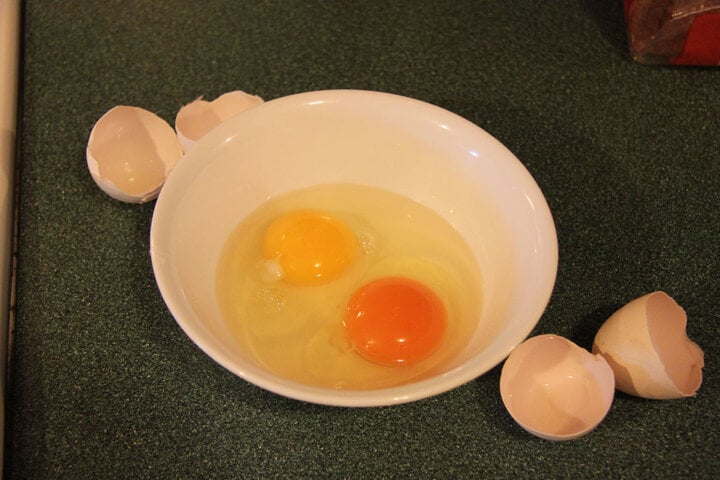Eggs are an important source of nutrients and are regularly included in meals. Besides being cooked directly (boiled, fried, steamed…), they are also used as an ingredient in many types of cakes, sauces, and other dishes.
The size of eggs available in the market is quite diverse. Many housewives try to choose small eggs because they believe that small eggs are tastier and richer in nutrients. Others are unsure whether to choose large or small eggs. Does size affect the nutritional content of eggs?
Should you choose large or small eggs?
When buying eggs at the market or supermarket, we can see that they come in different colors and sizes. According to Sohu, regardless of whether the eggs are light or dark in color, or large or small in size, their basic nutritional content is equivalent. In other words, the size of the egg does not affect its quality. As long as they are eggs from the same breed of chicken, the size does not matter as long as the same feeding regime is applied. Therefore, when choosing eggs, you do not need to worry too much about the size, but rather pay attention to their freshness.

Should you choose large or small eggs when buying? Size does not affect the quality of eggs; you should be more concerned about their freshness. (Photo: Allrecipes)
Some people believe that large eggs contain more protein, while others think the opposite and believe that small eggs are more natural and nutritious. However, regardless of the size, the protein content of eggs remains relatively stable. Nutritional composition tests have shown that the difference in protein content between large and small eggs is minimal, so there is no need to be concerned.
The publication of the US Department of Agriculture also shows that there is not much difference in the nutritional value of large and small eggs, whether they are from commercial or free-range chickens. They may differ slightly in taste, for example, free-range chicken eggs are more fragrant and have a higher yolk ratio than eggs from commercial chickens.

Free-range and commercial chickens have different flavors, but the nutritional content is not significantly different. (Photo: Delishably)
The quality of eggs is related to the farming environment, diet, and freshness. A good farming environment and a balanced diet can provide necessary nutrients to chickens, resulting in more nutritious eggs. Feeding chickens with a balanced diet that includes the appropriate amount of protein, vitamins, and minerals ensures the quality of the eggs. If the chickens are well-fed, the nutritional value of the eggs they lay, whether large or small, is equivalent.
Tips for choosing fresh eggs
We can assess the freshness of eggs by observing their appearance. Fresh eggs have smooth shells without cracks, dirt, or black spots. In addition, for packaged eggs, you should pay attention to whether the packaging is intact to avoid buying spoiled eggs.

When buying eggs, you don’t need to focus too much on the size, but rather on their freshness and quality. (Photo: Tasting Table)
You can check the freshness of eggs by shaking them. If you hear the sound of movement, then the egg may be old.
In addition, you should pay attention to the smell. Fresh eggs have no odor, while spoiled eggs may have a foul smell.
Touch the eggshell, if it feels slightly rough, it is fresh; if the shell is completely smooth and glossy, it has been stored for a long time. Chicken eggs have small pores to allow air circulation, if they are stored for a long time, these pores will get blocked, resulting in a smooth and shiny surface and loss of roughness.
According to VTC News





































